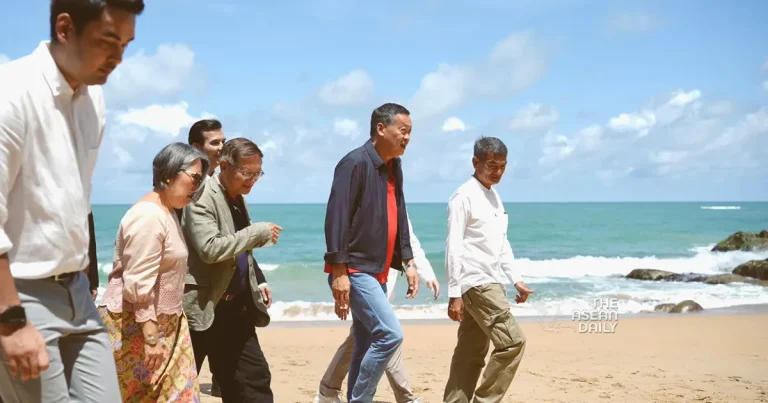30-8-2023 (BANGKOK) Thailand is poised to implement a series of visa rule relaxations, particularly benefiting Chinese and Indian tourists, and considering extended stays for visitors from all corners of the world. Prime Minister Srettha Thavisin, who recently assumed office, is exploring avenues to rejuvenate the tourism sector and elevate revenue to nearly US$100 billion in the upcoming year.
Chinese tourists, the largest group of visitors before the Covid-19 pandemic, have faced a costly and cumbersome visa application process, hampering their numbers this year, as noted by the Prime Minister. Similarly, Indian travelers are required to pay 2,000 baht ($57) for a 15-day visa on arrival. Mr. Srettha, representing the Pheu Thai Party, has expressed his desire to expand the list of visa-exempt countries and extend the stay duration for most international tourists, potentially allowing stays of 15 to 30 days for many nationalities.
In a meeting held on Monday, Prime Minister Srettha engaged with executives from Airports of Thailand (AOT) Public Company Limited and several airlines. The primary objective is to attract more foreign visitors during the fourth quarter, traditionally the peak season for tourism. During these discussions, AOT committed to reducing bottlenecks and enhancing flight capacity by 20%, while also exploring methods to expedite immigration procedures, as announced by Mr. Srettha on the social media platform X, formerly known as Twitter.
The new government’s aspirations include boosting foreign tourist revenue to 3.3 trillion baht next year, with the tourism industry being considered the “best short-term economic stimulus” by the Prime Minister. Tourism contributes approximately 12% to the country’s Gross Domestic Product (GDP) and nearly one-fifth of all jobs, according to data from the Bank of Thailand (BoT).
Thaneth Tantipiriyakij, President of the Phuket Tourism Association, suggested that waiving the visa application fee would be more beneficial than granting visa exemptions to Chinese and Indian visitors. This perspective was conveyed to the Prime Minister during a meeting over the weekend in the island province, attended by leaders of the travel sector.
“Visa fee exemptions are a ‘quick win’ for tourism,” remarked Mr. Thaneth. He added that international visitor arrivals in Phuket through July reached approximately 70% of pre-pandemic levels, but the recovery rate for Chinese arrivals was only 30%.
Nationally, it is estimated that foreign tourist arrivals will reach about 30 million in 2023, nearly tripling the 11.2 million recorded last year, according to Nomura Holdings Inc. As of now, over 17.5 million tourists have already visited, according to the Ministry of Tourism and Sports.
Despite China being the largest source of travelers last month, with nearly 420,000 arrivals, the return of Chinese tourists has been slower than expected. In 2019, prior to the Covid-19 pandemic, approximately 28% of Thailand’s record 40 million foreign arrivals were from China, generating around 1.9 trillion baht in revenue.
Several factors have contributed to the delay in Chinese arrivals, including stringent e-visa requirements introduced in May, particularly affecting group travelers. Thailand’s reliance on tourists from lower-tier Chinese cities, which may be more sensitive to China’s economic challenges, has also played a role.
To address these issues, Mr. Thaneth recommended increasing flights to Phuket and Krabi provinces and extending visas for tourists from Belarus, Kazakhstan, and Russia, who typically spend more than their counterparts from China and Malaysia.
While Prime Minister Srettha’s plans offer potential benefits, the underlying question revolves around demand-side conditions. The effectiveness of these supply-side measures in attracting tourists will depend on factors such as China’s economic outlook and consumer sentiment, according to analysts, including Euben Paracuelles from Nomura.




